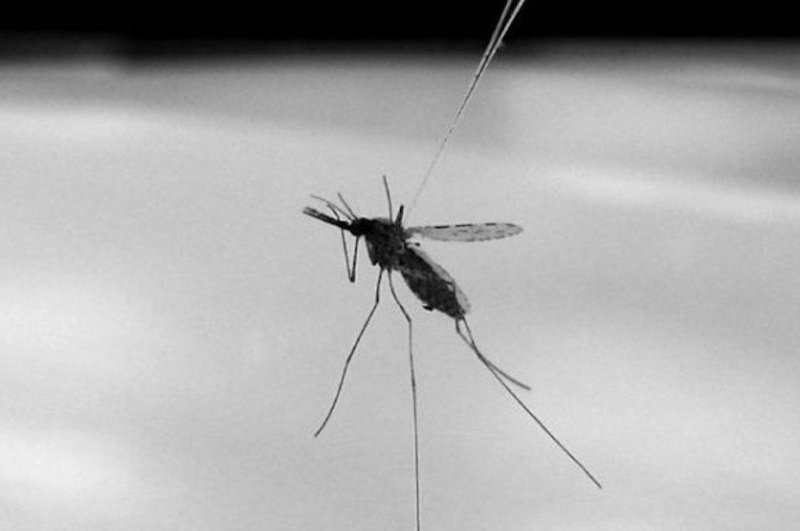Researchers genetically modified Anopheles gambiae mosquitos to develop gut microbiota that combats the malaria parasite. Photo by NIAID
Sept. 29 (UPI) -- While other mosquito-borne diseases have captured headlines in recent years, malaria remains the most problematic. Every year, several hundred million people become infected and a few hundred thousand perish.
But a recent breakthrough in the genetic modification could help breed disease-resistance into mosquito populations and eradicate malaria altogether.
Malaria is caused by a parasitic protozoan called Plasmodium that lives in the guts of mosquitoes. Humans can become infected when bitten by a mosquito carrying the parasite. To stop the disease in its tracks, scientists have been genetically modifying mosquitoes to make the insects resistant to the parasite.
While researchers have enjoyed success in breeding malaria-resistant mosquitoes in the lab, scientists were concerned the GM mosquitoes might suffer from a reduce libido or be unable to pass their disease-resistant traits onto offspring in the wild.
But a new study, published this week in the journal Science, suggests their methods translate to success in the wild. In tests, GM mosquitoes successfully mated with wild mosquitoes and passed along their disease-resistant trait.
"Ninety percent of the offspring in each generation passed along the GM trait," scientists explained in an NIH press release. "Even when combining 10 percent GM with 90 percent wild mosquitoes, the Plasmodium-resistance trait dominated after a few generations. Importantly, the GM mosquitoes maintained their resistance to the malaria parasite for 7 years."
Additionally, scientists found GM mosquitoes didn't suffer from a reduced libido. Instead, GM males proved more interested in mating with wild females, and GM females were more interested in wild males.
"These preferences contributed to the spread of the desired protective trait within the mosquito population," researchers wrote.
While the latest tests involved wild mosquitoes, the experiments were still conducted in the lab. To better gauge the potential of the disease fighting method, scientists plan to unleash GM mosquitoes in the wild during future tests.















